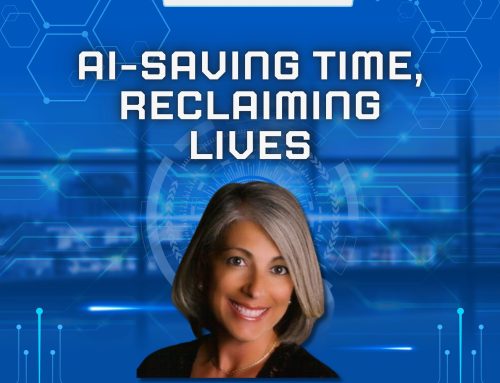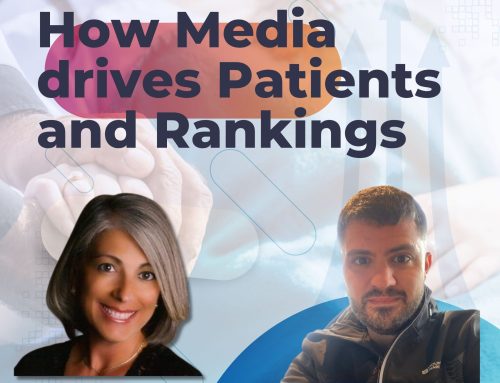Podcast: Play in new window | Download
Subscribe: RSS
In this episode, Barbara and Eunicia discuss:
-What strategies can you use to build your wealth
-How to empower the growth of your business
-The importance of collaboration
Key Takeaways:
” We need to look for activity, we need to look for action, and we need to know that that action is taking place.” – Eunicia Peret.
Connect with Eunicia Peret:
Website: https://www.podcast.excelstra.com
LinkedIn: https://www.linkedin.com/in/euniciaperet
Instagram: https://www.instagram.com/efp_official_team_page
YouTube: https://www.youtube.com/@ExcelstraOfficial
Facebook: https://www.facebook.com/empoweredfinancialplanner
Connect with Barbara Hales:
Twitter: https://twitter.com/DrBarbaraHales
Facebook: https/www.facebook.com/theMedicalStrategist
Business Website: https://www.TheMedicalStrategist.com
Email: halesgangb@aol.com
YouTube: https://www.Youtube.com/TheMedicalStrategist
LinkedIn: https://www.linkedin.com/in/barbarahales
Books:
Content Copy Made Easy
14 Tactics to Triple Sales
Power to the Patient: The Medical Strategist
TRANSCRIPTION (148)
Dr. Barbara Hales: Welcome to another episode of Marketing Tips for Doctors.
I’m your host, Dr. Barbara Hales. And today, we have with us a very special person, and her name is Eunicia Peret.
Are you worried that you are not building wealth fast enough? Or that your financial plan may not be enough to secure your future? Perhaps you hear the same strategies year after year when you file your taxes and wonder, how do the ultra-wealthy pay so little in taxes? I’m still trying to figure that out.
Eunicia Peret brings to awareness the power of leveraging your financial team to maximize your income streams and pay fewer taxes. I’m all for that. She has seen enough to know that without the proper strategies, everything else is just tactics in motion. Welcome to the show!
Eunicia Peret: It’s such a pleasure to be here with you!
Wealth Preservation Insights
Dr. Barbara Hales: I’m sure there are a lot of listeners that are saying, yeah, how do I pay less taxes? So first of all, aside from the fact that we all want to do that, how did you get involved in this to begin with?
Eunicia Peret: That’s a great question. I got involved in the whole strategy of how we create and maintain wealth, how we preserve it, and how we pass it on to future generations. I was forced to take a deep look into what was happening with our portfolio because my husband and I enjoy real estate and different types of asset classes.
As you can imagine, our financial advisors or experts were not exactly thrilled when we asked questions about investments outside of what they could handle for us. Consequently, we realized that, due to our substantial incomes, we were in the top-level tax categories. We weren’t receiving advice or support on how we could minimize our tax burden.
When I discovered numerous strategies and options available to reduce our tax burden based on the tax code, I was in shock. As I delved further, I wanted to understand if this was a unique situation or if other high-income and high-net-worth individuals were experiencing the same. What we found was astonishing – we were not alone. Many individuals in the higher income bracket also found themselves in the top tax brackets without a choice.
Wealth-Building Strategies
Dr. Barbara Hales: Why do business owners not know that there is so much more that they could achieve when it comes to keeping more of what they earn?
Eunicia Peret: That’s a great question. And the question I would pose back to you if you’re listening, is: Have you ever considered, for example, having your hiring, your structure, or your own family office? Oftentimes, individuals will ask us, “What is a family office?” Well, a family office, if we take a moment to explain, is the epitome of having a financial team on your side, helping implement tech strategies, assisting with investment strategies, and determining the trajectory for estate planning, legacy planning, and deciding the future of our businesses when we choose to exit the business world or take a different path.
Often, what we hear is that individuals cannot hire such a family office because it’s cost-prohibitive and institutionally focused. These teams are experts, but they focus on a very small pool of people. As a result, others often dismiss it, opting to work with a CPA or financial planner who addresses more common concerns like 401ks, IRAs, the Augusta rule, and other easily accessible strategies found through a quick online search on how to, for example, minimize taxes.
Consequently, we end up following the same path as everyone else in the general population, rather than thinking like the uber-rich. We often think like the lower-left percentile of the population because we don’t realize there’s an in-between. So, what if we were to say, let’s focus on a fractional family office? What would that look like? Now, we can bring some of those institutional-level strategies down to the individual business owner or the struggling family paying too much in taxes, trying to understand what’s missing in their overall wealth-building efforts, and grappling with leaving a legacy behind.
The decision is still ours: will we build wealth or save taxes? How do we pay taxes? Do we continue with the status quo, or do we adopt these strategies now that we know there’s a solution for that?
Dr. Barbara Hales: Well, let me make it clear when we’re talking about a family office. We’re not talking about your son and daughter vying with you in the same room for your computer time.
Eunicia Peret: Thank you so much for that, Barbara. Not. A family office is focused on individuals, business owners, and businesses that are generally going to be $50 million and above in net worth. So oftentimes, it’s because of that that people don’t even know what a family office is. Our job is to decipher that idea of what it is.
But more importantly, what are the things that we can take and implement to our advantage by leveraging a simpler model that is decentralized, in such a way that individuals at lower levels of net worth can benefit from those strategies?
Aligning Financial Teams
Dr. Barbara Hales: What happens when the client’s team is not actively working together towards their goals? I can imagine that friction between everyone leads to a bad taste and nothing getting accomplished.
Eunicia Peret: 100%. In the happiest of cases, it’s the friction—I will take the friction over no communication anytime. Fortunately, what we’re seeing is that it’s a lack of communication between the different teams. If, at least, there’s friction, we can get to the bottom of whether we have the right people on the bus or not. Can we bring them up to speed with the different strategies and mindsets that consumers are grappling with when deciding the path to take? The answer is obvious; either they are or they aren’t. If they aren’t, then we know that we need to do something about it.
However, the challenge arises when the teams aren’t communicating. Most teams aren’t communicating because they’re not incentivized. In many cases, the strategies that a financial planner versus a CPA might share with the client can potentially go head-to-head or contradict each other. Because of that, oftentimes, everybody prefers to stay in their box and their area of expertise. Unfortunately, not transcending the different areas across the financial services industry ends up leaving cracks that ultimately allow money to get siphoned through, oftentimes without knowing.
Empowering Business Growth
Dr. Barbara Hales: What are some immediate steps that business owners can take to have a sense of power over how they grow?
Eunicia Peret: Well, one of the most immediate steps that folks can take is, if you’re listening to this and you have that nagging feeling of “I need to do something, I know something’s not sitting right. I feel like maybe I’m paying too much in taxes. Every time I meet with my CPA or my financial team, whoever they may be, they’re providing the same guidance over and over again,” it’s time to ask the question of, “Okay, how do we take it to the next step?” That’s where you would want to get in touch with someone like Excelstra to say, “Here’s my situation, what are the different things that can be done?” and figure out what the next steps are from there.
Incentivizing Financial Collaboration
Dr. Barbara Hales: Very interesting. How can financial teams be incentivized to work together in an industry that is not designed for transparency and collaboration?
Eunicia Peret: It’s a hard one because if they’re not already incentivized financially, think about it, right? When a patient shows up at a physician’s office, what motivates the physician to see the patient? Of course, we want to ensure that the folks we work with are well taken care of, but everything is contract costs or contract time. So oftentimes, it breaks down to the financial incentive for those individuals to actually take their time to speak with the other person.
The other thing and this kind of dovetails more on the side of who they are as individuals, oftentimes, if you’re working with a really good team, they will at least want to introduce themselves to meet the other team members. Oftentimes, you’ll hear that, “Oh, that’s a great idea. Just observe and see what happens.” And if you don’t actually see activity happening, because everybody’s words are very cheap, as I’m finding, everybody will say, “That’s a great idea. Absolutely, let’s put some time on the calendar.” And what happens? Here’s another January first.
And when we look in retrospect, what we realize is that there could have been so many things that we probably could have done last year that could have impacted how much money we pay on taxes or truly our bottom line. But because it’s now past the year, we can do it retrospectively. So, again, words can be cheap. We need to look for activity, we need to look for action, and we need to know that that action is taking place.
Financial Team Synergy Impact
Dr. Barbara Hales: Why do you feel so strongly about seeing the client’s financial team collaborate?
Eunicia Peret: The reason I feel so strongly is that I see the impact on the clients we have served in the past. The benefits of keeping more of the money they make allow them to invest more in the future, in their businesses, and in their children. It also gives them a sense of accomplishment, knowing that they are doing something that most people do not have the access or the opportunity to take on under their wing. When they see the results, we have had clients in my office with tears in their eyes. Seeing the value that those clients get is what makes me joyful in what we do, despite the hard work we undertake to ensure that our client’s financial teams talk and that actions are not just words.
Reaching Eunicia
Dr. Barbara Hales: So, Eunicia, I understand that you have something in writing that people could get to get a better sense of what you’re all about and how they should proceed to protect themselves.
Eunicia Peret: Absolutely, they can visit our website to get what I call the five financial pitfalls to avoid. Those are things we have seen throughout the years, helping individuals to step out of the norm and step into the uniqueness of what they can achieve. You can find that on our website at www.podcast.excelstra.com. It’ll be right at the bottom of the page on the left-hand side. You can’t miss it.
Dr. Barbara Hales: Okay, great. Now, listeners, I think that’s worth checking out and reading more about so that not only are you more educated, but by hearing about the five steps, you too can save some more money. This has been another episode of Marketing Tips for Doctors. Until next time!



